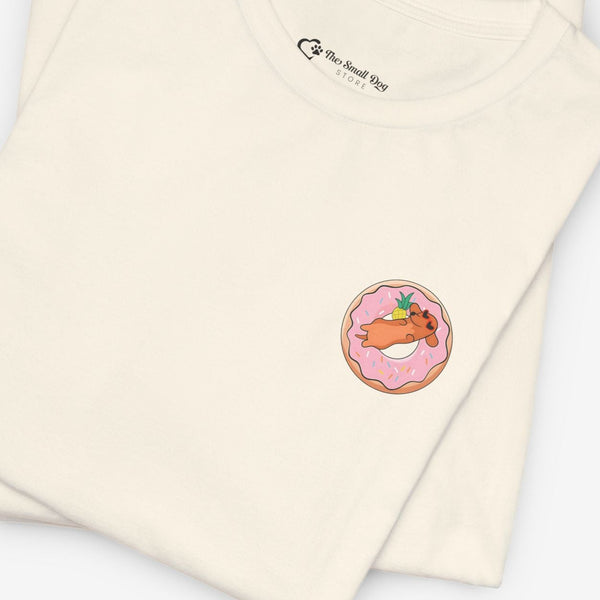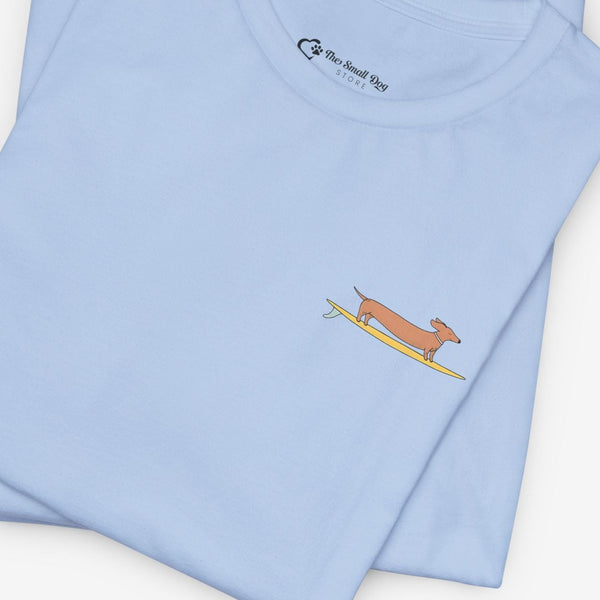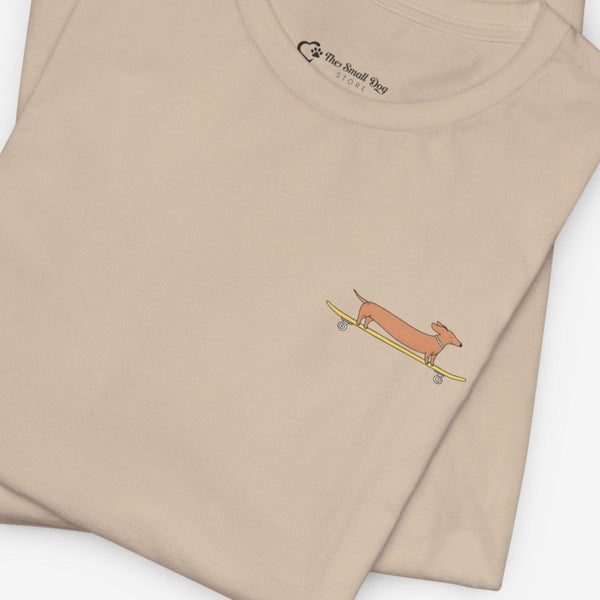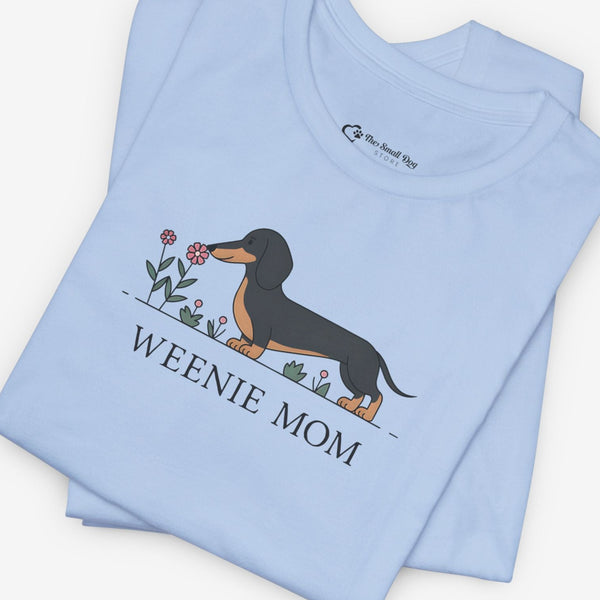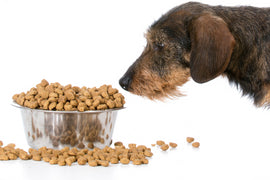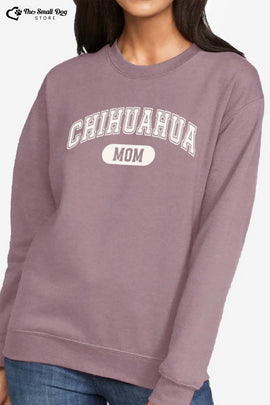The Ultimate Guide to Feeding Your Dachshund Puppy
Posted by ROBERTO BURALLI

As a dachshund owner, one of the most important responsibilities you have is ensuring your puppy gets the right nutrition. Proper feeding not only supports your puppy's growth and development but also sets the foundation for a healthy adult life. This comprehensive guide will cover everything you need to know about feeding your dachshund puppy.
Before we dive into the specifics of feeding, it's important to note that proper nutrition is just one aspect of caring for your dachshund. For a broader overview of dachshund care, including tips on grooming, exercise, and health, you might want to check out our Dachshund Care Guide: Keeping Your Wiener Dog Happy and Healthy. This guide complements the feeding information we'll cover here and provides a well-rounded approach to dachshund care.
Now, let's focus on the crucial topic of feeding your dachshund puppy.
What Should I Feed My Dachshund Puppy?
Feeding a dachshund puppy requires careful attention to their specific nutritional needs to ensure healthy growth and development. Here are key considerations and guidelines:
Nutritional Requirements
1. High-Quality Protein:
- Choose puppy food that is high in quality protein to support muscle development.
- Protein is essential for growth and should be a primary component of your puppy's diet.
2. Fats and Omega-3 Fatty Acids:
- Include healthy fats for energy.
- Ensure the food contains omega-3 fatty acids, especially DHA, which are crucial for brain and eye development.
3. Vitamins and Minerals:
- The food should contain a balanced blend of vitamins and minerals to support immune health and overall development.
4. Caloric Needs:
- Puppies have higher calorie requirements per pound than adult dogs.
- Provide enough calories to support their growth.
- Follow the feeding guidelines on the food package and adjust as needed based on your puppy's growth and activity level.
Feeding Schedule
Dachshund puppies require frequent feeding to maintain stable nutrition and blood sugar levels, which helps prevent hypoglycemia, a condition they're prone to due to their small size.
Initially, feed your dachshund puppy at least three times a day, but adjust the schedule as they grow
- From 6 to 12 weeks: Four meals a day
- From 3 to 6 months: Three meals a day
- Approaching adulthood: Transition to two meals a day
Types of Food
1. Dry Kibble:
- Convenient and cost-effective option
- Provides dental benefits by reducing plaque and tartar buildup
- Ensure the kibble size is small enough for your puppy to chew comfortably
2. Wet Food:
- Higher moisture content, which can be beneficial for hydration
- Often more palatable and aromatic, good for picky eaters
- May lack the dental benefits of dry food
3. Raw Diet:
- Some owners opt for a raw diet
- Requires careful planning to ensure nutritional balance
- Carries a risk of bacterial contamination
- Consult with a veterinarian before choosing this option
Treats and Supplements
Healthy Treats:
-
Choose treats without artificial preservatives or additives.
-
Natural treats like small pieces of vegetables can be a good option.
Supplements:
- Consider supplements like omega-3 fatty acids if they are not adequately provided in the diet.
- Always consult with a vet before adding supplements to your puppy's diet.
Transitioning to Adult Food
- Transition your dachshund from puppy to adult food around 12 months of age, or when they have reached skeletal maturity.
- Consult with your vet to determine the best time for this transition based on your puppy's growth.

How Much Should I Feed My Dachshund Puppy at Different Ages?
Feeding a dachshund puppy involves adjusting the amount and frequency of meals as they grow. Here are detailed guidelines for feeding your dachshund puppy at different ages:
Feeding Schedule and Portions
2 Months Old:
- Feed four times a day
- Total daily amount: 2 to 2.5 ounces (approximately 67 grams)
- Each meal: about 0.5 ounces (17 grams)
3 Months Old:
- Continue with four meals per day
- Total daily amount: 2.5 to 3 ounces (75 to 85 grams)
- Each meal: slightly over 0.5 ounces (20 grams)
5 Months Old:
- Reduce to three meals per day
- Total daily amount: 3 to 4 ounces (80 to 100 grams)
- Each meal: about 1 ounce (25 to 35 grams)
7 Months Old:
- Transition to two meals a day
- Total daily amount: 5 to 5.5 ounces (150 grams)
- Each meal: around 2.5 ounces (75 grams)
9 Months Old:
- Continue with two meals per day
- Total daily amount: about 7 ounces (200 grams)
- Each meal: approximately 3.5 ounces (100 grams)
11 Months and Above:
- Maintain two meals per day
- Total daily amount: 8 to 9 ounces (250 grams)
- Each meal: about 4 to 4.5 ounces (125 grams)
General Feeding Tips
- Quality of Food: Choose high-quality puppy food specifically formulated for small breeds. This ensures your puppy gets the necessary nutrients for growth and development.
- Caloric Needs: Adjust the portion sizes based on your puppy's weight, activity level, and specific needs. Consulting with a veterinarian can provide personalized advice.
- Feeding Routine: Establish a consistent feeding schedule to help regulate digestion and prevent overeating.
- Monitor Growth: Regularly weigh your puppy and adjust food amounts as needed to maintain a healthy growth rate.
- Fresh Water: Always provide access to clean, fresh water.
What Are the Best Brands of Food for Miniature Dachshund Puppies?
When selecting food for miniature dachshund puppies, it's important to choose brands that offer high-quality, nutritionally balanced options specifically designed for small breeds. Here are some of the best brands recommended for miniature dachshund puppies:
1. Royal Canin:
- Tailored to meet the nutritional needs of dachshund puppies
- Features smaller kibble sizes suitable for their small mouths
- Includes ingredients that support joint health and growth
- View more
2. Hill's Science Diet:
- Known for high-quality ingredients and adherence to WSAVA guidelines
- Offers small breed puppy formulas
- Well-regarded by veterinarians and pet owners
- View more
3. Purina Pro Plan:
- Provides a range of puppy foods formulated to support the growth and development of small breed puppies
- Includes options specifically designed for dachshunds
- View more
4. Blue Buffalo:
- The Blue Buffalo Life Protection Formula for small breeds is popular
- Includes deboned chicken and chicken meal as primary protein sources
- Provides a balanced diet for growing puppies
- View more
5. Taste of the Wild:
- Grain-Free Dry Dog Food with Roasted Bison and Venison
- Features unique protein sources like bison and venison, which can be appealing for puppies
- Grain-free formula, which may be beneficial for puppies with grain sensitivities
- Contains fruits and vegetables for natural antioxidants
- Formulated to meet the nutritional needs of growing puppies
- View more
6. Fromm:
- Known for its family-owned business and quality control
- Offers a small breed puppy formula well-regarded among dachshund owners
- View more
These brands provide a variety of options, including dry kibble and wet food, to suit different preferences and dietary needs. Always consult with a veterinarian to ensure the chosen food meets your puppy's specific nutritional requirements.

Should I Feed My Dachshund Puppy Wet or Dry Food?
The choice between wet and dry food for your dachshund puppy depends on several factors, including their health, dietary needs, and preferences. Both types of food can be suitable for dachshunds, and each has its own benefits:
Wet Food
Advantages:
- Hydration: Wet food has a high moisture content, which can help keep your puppy hydrated, especially if they don't drink much water on their own.
- Palatability: Often more palatable and aromatic, making it a good choice for picky eaters or puppies with dental issues that make chewing difficult.
- Texture Variety: Comes in various textures (pâté, chunks in gravy, etc.) which can be appealing to some puppies.
Disadvantages:
- Dental Health: Exclusively feeding wet food may not provide enough dental stimulation, which could lead to dental problems over time.
- Spoilage: Once opened, wet food spoils quickly and needs refrigeration.
- Cost: Generally more expensive than dry food.
Dry Food
Advantages:
- Dental Health: Dry kibble can help maintain dental health by reducing plaque and tartar buildup through the chewing action required to consume it.
- Convenience: Easy to store, has a longer shelf life, and is generally more cost-effective than wet food.
- Nutritional Balance: High-quality dry foods are nutritionally complete and balanced, ensuring your puppy gets all the nutrients they need.
- Portion Control: Easier to measure and control portions, which can help prevent overfeeding.
Disadvantages:
- Hydration: Lower moisture content compared to wet food.
- Palatability: Some puppies may find dry food less appealing than wet food.
Combination Approach
Many owners choose to mix wet and dry food to provide the benefits of both. This approach can:
- Enhance palatability while also supporting dental health
- Provide variety in your puppy's diet
- Allow for easier adjustment of calorie intake and nutrient balance
Factors to Consider
When deciding between wet and dry food (or a combination), consider:
- Your puppy's preferences
- Dental health needs
- Hydration levels
- Any specific health concerns or dietary requirements
- Your budget and lifestyle (convenience factor)
Transitioning Between Foods
If you decide to change your puppy's diet or mix wet and dry foods:
- Introduce the new food gradually over 7-10 days
- Start with a small amount of the new food mixed with the current food
- Gradually increase the proportion of new food while decreasing the old food
- Monitor your puppy for any digestive issues during the transition
Conclusion
Feeding your dachshund puppy the right food in the right amounts is crucial for their health and development. Whether you choose wet food, dry food, or a combination, the key is to provide a balanced, nutritious diet that supports your puppy's growth and meets their unique needs.
Remember that every puppy is unique, so what works for one may not work for another. Pay attention to your puppy's appetite, energy levels, and overall health. Regular weigh-ins and check-ups with your veterinarian can help ensure your feeding plan is working well.
By following these guidelines and adjusting based on your puppy's individual needs, you'll be setting your dachshund up for a healthy, happy life. Don't hesitate to consult with your veterinarian if you have any concerns or questions about your puppy's diet. With the right nutrition and care, your dachshund puppy will grow into a healthy, vibrant adult dog.
Happy feeding!
TAGS:
SHARE:





